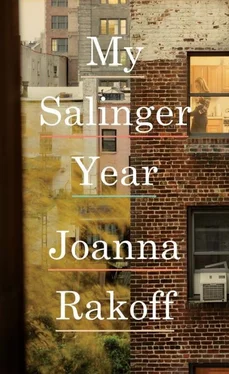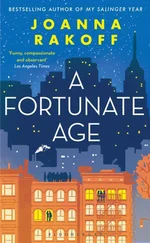At five, my phone rang, startling me out of this sad reverie. “Hey, lady, what’s shaking?” came Don’s low voice from the receiver. “How’s work?” He pronounced this last word with quotes around it, as if I were merely playing at having a job. To Don, “work” meant laying bricks or mopping floors or stamping metal in a factory. Don was a socialist.
On our first date, we’d met at a clock-themed Italian restaurant on Avenue A, chosen—he explained, as he slid into the seat across from me—because of its proximity to the socialist bookstore up the street, where he had just finished a shift. “So, wait,” I asked Don, as we waited for plates of pasta. “Do you—do, um, contemporary socialists—really think you’re going to overthrow the federal government?”
He swirled his wine, then took a small sip, a little shudder passing through him. “No. I mean, yes, there are some people who do. But most don’t.”
“Then what’s the purpose of the party?” I really wanted to know. In the 1930s, my grandmother had been asked to run for Senate on the Socialist Party ticket. My great-uncle had been shot in a union rally at the Forward Building on East Broadway. My father, when he enlisted during the Korean War, was investigated by the FBI. But no one in my family would talk about politics. The 1950s had scared the impulse out of them. “What do you do? Other than sell books?”
“We educate. We try to raise class awareness. We combat materialism. We work with unions and help laborers organize.” And then, suddenly, he took my hand, and his voice—already low, a gravelly bass—became lower. “We offer an alternative,” he said. “To everything else. We offer a different way of thinking about the world.”
Now his voice came through the phone at me, gravelly and droll. He had a smoker’s rasp, though he abhorred smoking. “Listen,” he said. “Why don’t you meet me at the L after work.” The L was the one café in Williamsburg. Don often installed himself there in the evenings, writing in his journal and drinking so much coffee that his leg jumped up and down. “I talked to this realtor who may have a place for us.”
“For us ?” I asked. We’d known each other for just a few months. I had a boyfriend in California. Whom I would be joining. At some distant point in the future. “An apartment for us ?”
“Us,” he said. “You’ve heard this word before. It means you”—he spoke with exaggerated slowness—“and me.”
My boss left at five on the nose, breezing by with a little wave. “Don’t stay too late!” she called. I was still typing, Dictaphone still whirring. A few minutes later, Hugh came by, a down coat over his sweater. “Go home,” he said. “You’ve done enough.” There was a brief surge of laughter—a rustling of bags and coats—as the bookkeepers and the messenger went home, and then the office fell quiet and dark, the only light in our wing of the office the one on my desk. I finished the letter I was typing and pulled it out of the Selectric, then slipped my coat off the back of my chair and made my way toward the door.
For a moment, I paused in front of the wall of Salinger books and looked at the titles, the familiar spines. My parents owned most of these: paperbacks of The Catcher in the Rye and Raise High the Roof Beam, Carpenters and Seymour—an Introduction; a pristine hardback of Franny and Zooey . But I had read around them. Why? Why had I skipped Salinger? Partly due to happenstance. My high school English teacher never assigned Catcher . No older sibling put a copy in my fourteen-year-old hands and said, “You have to read this.” And then my Salinger moment—the window between twelve and twenty, when everyone in the literate universe seems to go crazy over The Catcher in the Rye —had passed. Now I was interested in difficult, gritty fictions, in large, expansive novels, in social realism. I was interested in Pynchon, Amis, Dos Passos. I was interested in Faulkner and Didion and Bowles, writers whose bleak, relentless styles stood in stark opposition to what I imagined Salinger to be: insufferably cute, aggressively quirky, precious. I had no interest in Salinger’s fairy tales of Old New York, in precocious children expounding on Zen koans or fainting on sofas, exhausted by the tyranny of the material world. I was not interested in characters with names like Boo Boo and Zooey. I was not interested in hyper-articulate seven-year-olds who quoted from the Bhagavad Gita. Even the names of the stories seemed juvenile and too clever-clever: “A Perfect Day for Bananafish.” “Uncle Wiggily in Connecticut.”
I didn’t want to be entertained. I wanted to be provoked.
The realtor led us to a pretty row house on North Eighth Street, a block from the train, next to a large Polish bakery, leafless trees casting shadows onto the snow from the streetlights’ glow. “It’s back here,” he said, unlocking the front door and walking past the graceful staircase, past the doors to the first-floor apartments, and out a door at the back of the building. Where on earth are we going? I thought, trailing the two men. We were going to an interior courtyard, covered in snow, at the end of which stood a tiny, three-story house, dilapidated and neglected, but also like something out of a storybook, a secret.
The apartment itself was small and strange, its wooden floors freshly painted an odd brick red—the fumes still filled the place—its doorways arched and lacking in actual doors. The living room held a closet and a tiny strip of kitchen, a miniature stove and fridge; the small bedroom overlooked the cement courtyard and the rear windows of the front house; the bathroom was tiled in lurid pink. The floor slanted visibly to one side.
“How much is it?” Don asked the realtor. “Five hundred?”
“Five forty,” said the realtor.
“We’ll take it,” said Don.
Incredulous, I widened my eyes at him. “We might need a day to talk it over. We might want to look at a few other places.”
“No,” said Don, laughing. “We’ll take it. How much is the deposit?”
Outside, the cold air felt delicious on my cheeks. We’re not really taking it , I thought. And yet just the thought of going back to Celeste’s—even to collect my things—made me stiffen with anxiety. The pasta. The overstuffed sofa. The paraplegic cat.
A moment later, we were in the realtor’s office, filling out forms.
“It’s going to be in her name,” said Don, and I shot him a look of alarm, my heart beating faster. If the apartment was in my name, it meant that responsibility for the rent lay with me, that Don was not culpable at all. This seemed terribly scary considering $540 represented more than half my paycheck.
“You’re the one with the job,” Don explained, taking my arm, as we walked back toward his old apartment. “You’re the one with good credit.”
“How do you know I have good credit?” I asked.
“I just know,” he said, stopping and pulling a pair of worn leather gloves out of his pocket. “Besides, it has to be better than mine.”
“What do you mean?”
He took in a deep breath of frigid air. “I defaulted on my student loans,” he said.
“You defaulted on your student loans?”
“That’s what I just said.” Shaking his head, he smiled brilliantly. “It’s no big deal. The banks are evil, anyway. They’re just preying on eighteen-year-olds. What do they care if they lose my twenty grand?” He planted a cold kiss on my right cheek. “You’re so bourgeois. Seriously, Buba, it’s no big deal. I had a novel to write. I didn’t have time to worry about student loans.”
I wasn’t sure what to say about this, what to think.
Читать дальше












